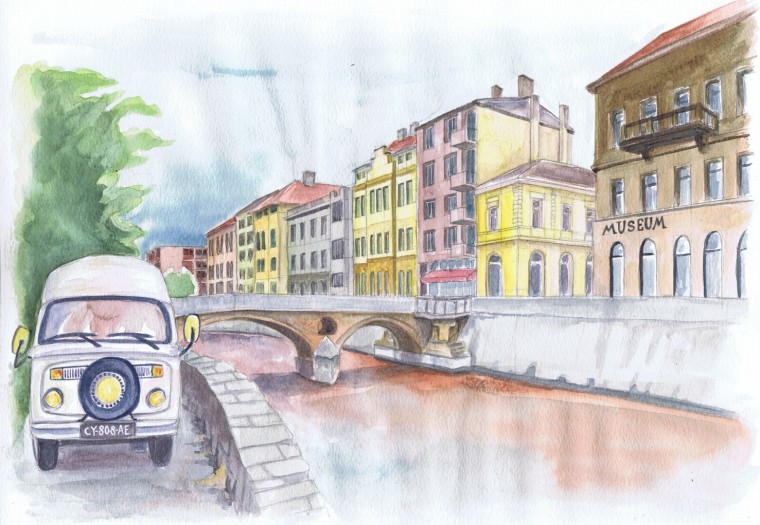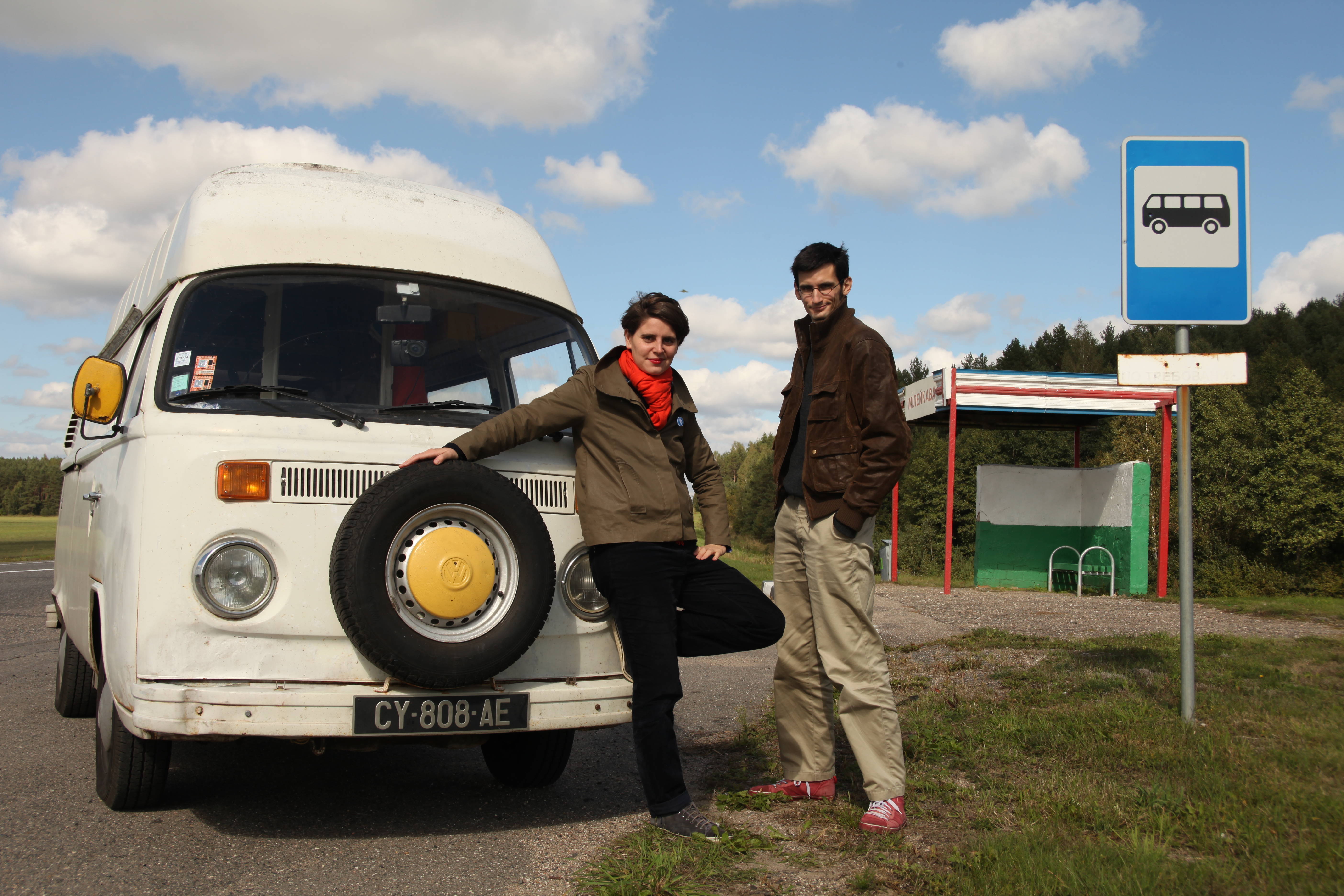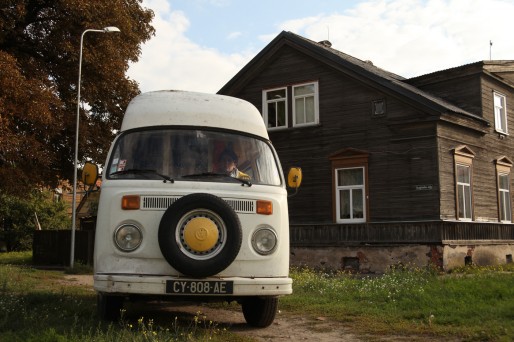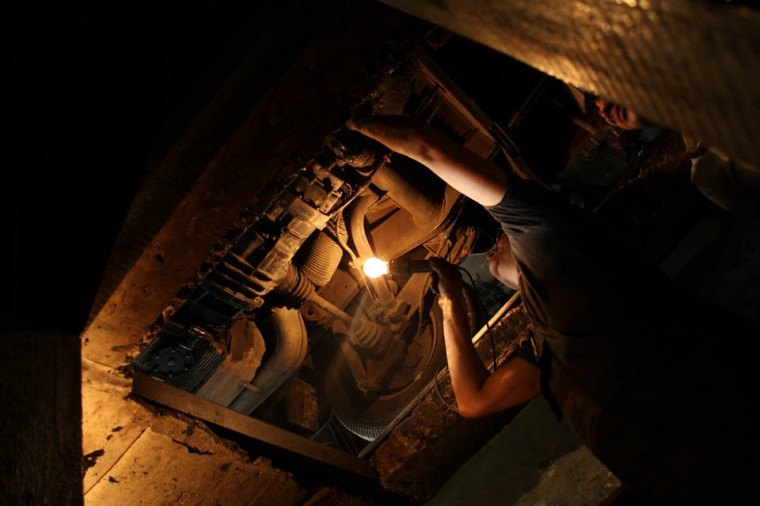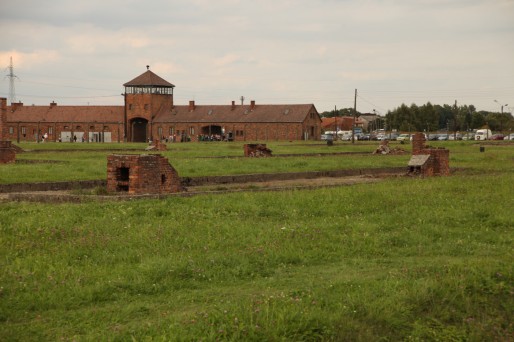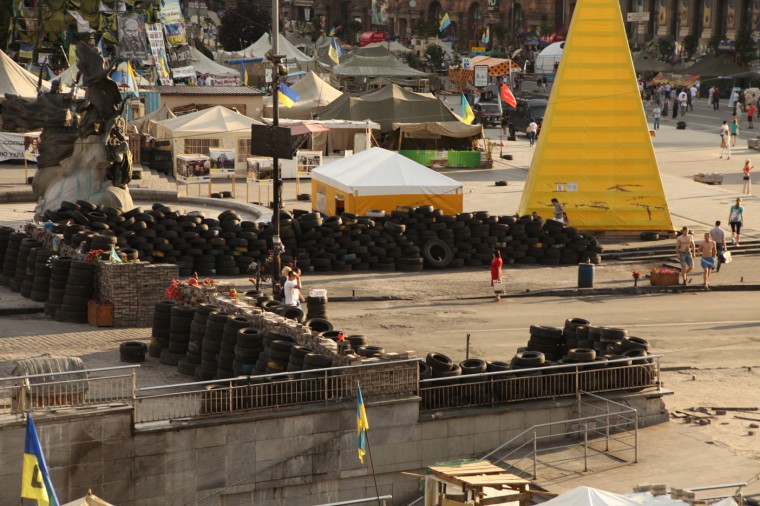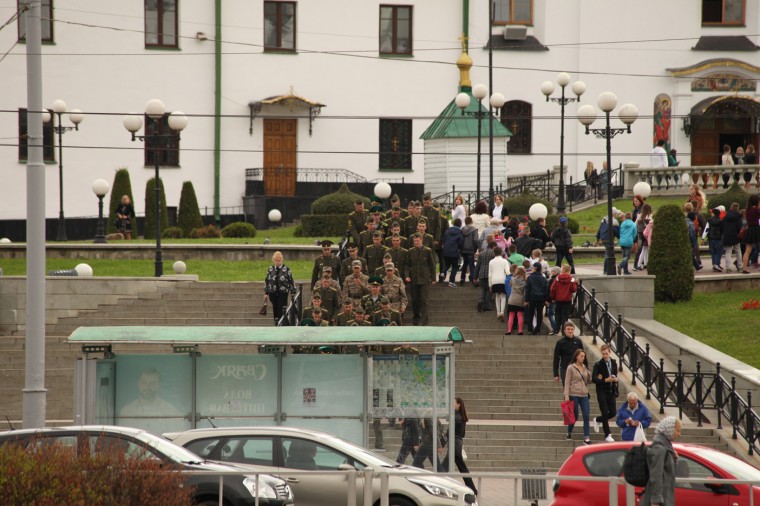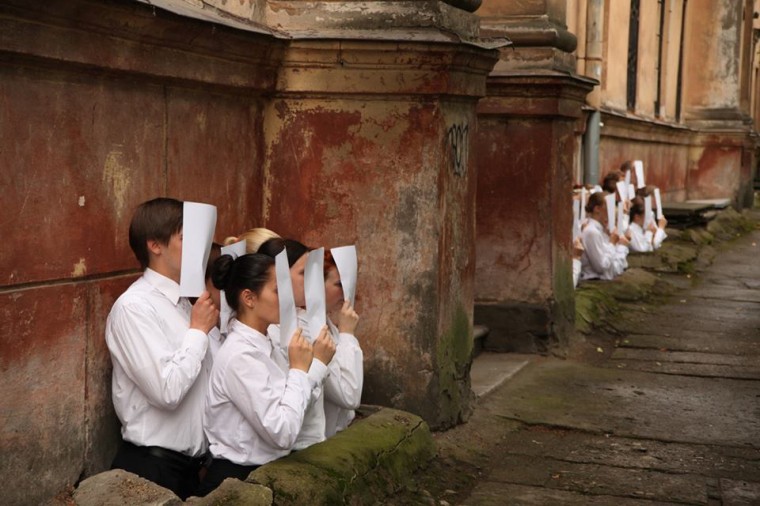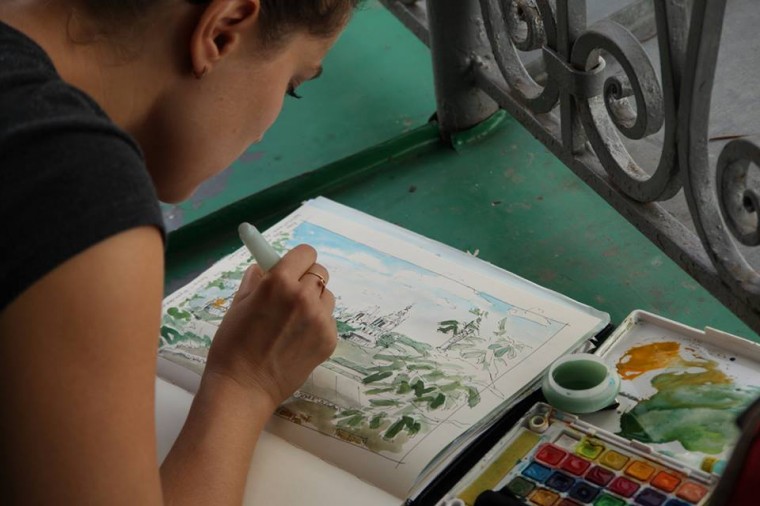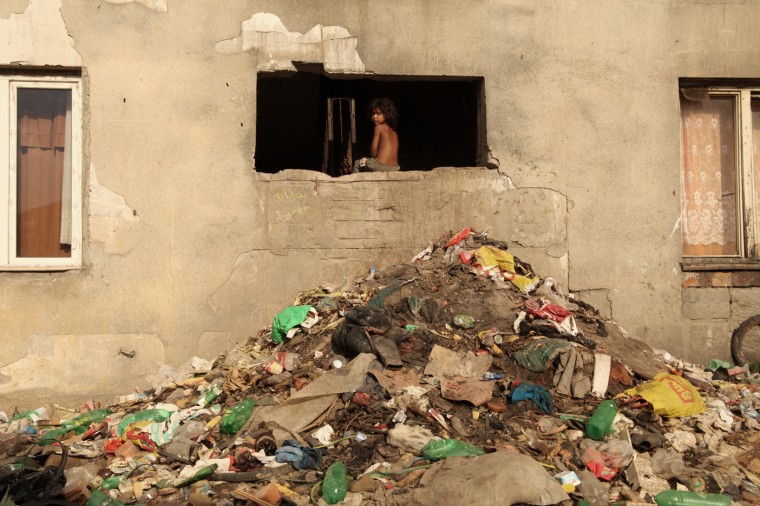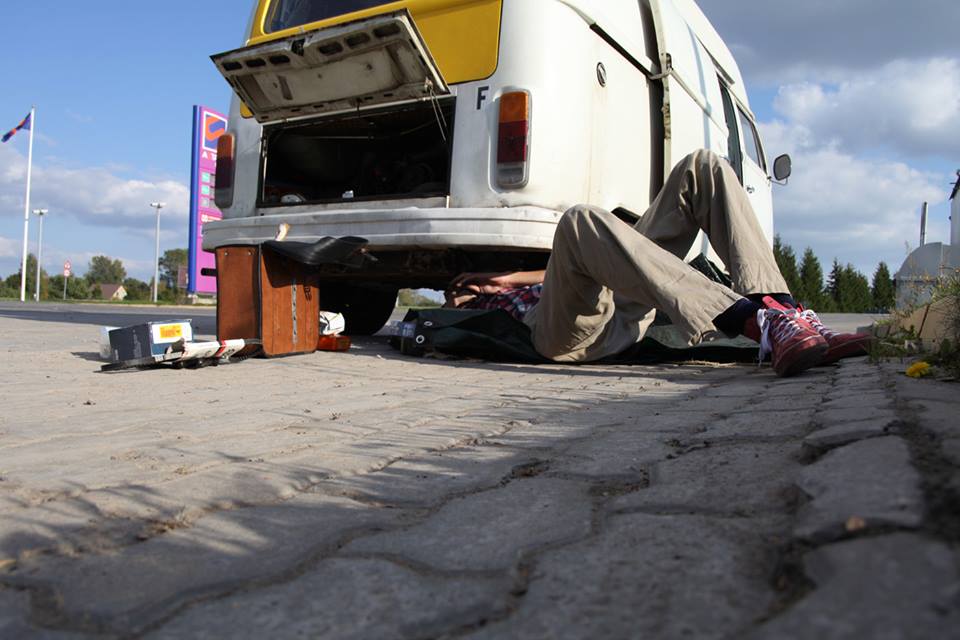Cette semaine, vous pouvez découvrir des reportages à propos de Sarajevo, capitale de la Bosnie-Herzégovine, dont le long siège dans les années 1990 a laissé des traces dans le paysage urbain et dans les mémoires des Bosniens. Quant au Bulli, il trace sa route vers l’Est, rejoignant Skopje en Macédoine, puis la Bulgarie.
Le pont Latin à Sarajevo – Illustration Jonathan Bonard
Sarajevo, étape phare de ce tour d’Europe, s’apprête à commémorer le centenaire de l’assassinat de l’archiduc François-Ferdinand. Pourtant, ses habitants n’ont pas encore pansé les blessures de son lourd passé. Le siège demeure dans les mémoires. Les Sarajéviens mobilisèrent toutes les formes de résistance face à l’armée serbe. Notre équipe a rencontré le « général à la rose », Jovan Divjak, d’origine serbe, qui se revendique bosnien et qui a défendu la ville pendant le siège. Ce héros vivant nous raconte la résistance de la population : pour lui, il fallait vivre comme en temps de paix, malgré les atrocités du siège. La culture est l’une des clés de cette résistance. C’est cette résistance culturelle qui a retenu l’attention de l’équipe du Bulli Tour Europa sur place. Le théâtre de la guerre, créé pendant le siège, est le fruit de cette résistance, tout comme le centre André Malraux, fondé par le Français Francis Bueb en 1994, une oasis de civilisation au milieu du chaos.
Nos reporters ont ensuite repris la route. Ils se sont arrêtés à Skopje pour rencontrer plusieurs artistes macédoniens. Puis ils ont pris la direction de la Bulgarie, sur les traces du judaïsme oriental, avant de rejoindre la capitale, Sofia, pour donner la parole aux étudiants et aux leaders du mouvement des indignés, qui a fait pression sur le gouvernement du pays en 2013. Notre équipe prend à présent la route de Svilengrad, à la frontière turco-bulgare pour réaliser un reportage sur la militarisation de cette frontière et donner la parole aux réfugiés venus d’un peu plus loin à l’Est qui ont tenté de la traverser.
Chronicle of week n°5: Sarajevo at the heart of the Balkans
This week, you can discover the reports on Sarajevo, the capital of Bosnia-Herzegovina, the setting of a siege in the 1990s that has left marks on the landscape and in the memories of the Bosnians. As for the Bulli, it tracks its route towards the East, going through Skopje in Macedonia, and then Bulgaria.
Sarajevo, a milestone of this tour of Europe, is about to commemorate the centenary of the assassination of Archduke Franz Ferdinand. However, the inhabitants’ wounds have not yet healed from this painful past. The memory of the siege is still alive. The inhabitants of Sarajevo gathered all their forces to resist the Serbian army. Our crew has met with the « general of the rose », Jovan Divjak, a Serbian, who claims he is Bosnian and who protected the city during the siege. This living hero tells us about the resistance of the people : in his opinion, people had to go on with their daily lives, in spite of the atrocities of the siege. Culture is one of the main elements of this resistance. That cultural resistance has caught the attention of the crew of the Bulli Tour Europa. The wartime theatre, created during the siege, is the result of the work of the resistance, like the centre André Malraux, founded by the Frenchman Francis Bueb in 1994, an oasis of civilisation in the middle of chaos.
After that our reporters were back on the road. They stopped in Skopje to meet with several other Macedonian artists. Then they headed for Bulgaria, in the footsteps of modern Judaism, before going to the capital, Sofia, to give a voice to the students and to the leaders of the movement of the 15-M who shook the country in 2013. Our crew is now heading for Svilengrad next to the Turkish-Bulgarian border to make a report on the militarization of this border, and talk to the refugees who tried to cross it.
Chronik der fünften Woche – Sarajevo, Herz des Balkans
Diese Woche gilt es die Reportagen aus Sarajevo zu entdecken, der Hauptstadt Bosnien-Herzegowinas und Schauplatz einer Belagerung in den 1990-Jahren, die noch immer Spuren in der Landschaft, als auch den Erinnerungen der Bosnier hinterlassen hat. Für den Bulli geht es immer weiter nach Osten, später nach Skopje in Mazedonien und weiter nach Bulgarien.
Sarajevo ist ein Meilenstein auf der gesamten Europa-Tour, gilt es doch hier des 100jährigen Jubiläums der Ermordung des Erzherzogs Franz Ferdinands zu gedenken. Und immer noch sind die Wunden, die den Einwohnern in ihrer schmerzvollen Vergangenheit zugefügt worden sind, nicht zur Gänze verheilt. Die Erinnerung an die Besatzung ist noch immer lebendig. Die Einwohner von Sarajevo haben all ihre Kräfte vereint, um sich der serbischen Armee entgegenzustellen. Unsere Reporter haben den „General der Rosen“ Jovan Divjak getroffen, einen Serben, der sich selbst als Bosnier sieht und der die Stadt während der Besatzung beschützt hat. Dieser lebende Held erzählt uns von dem Widerstand der Menschen – seiner Meinung nach, müssen die Menschen ihr tägliches Leben fortsetzen, trotz aller Gräuel, die die Besatzung mit sich bringt. Die Kultur ist einer der Schlüssel dieses Widerstands. Eben jener kulturelle Widerstand hat auch die Aufmerksamkeit unserer beiden Reporter der Bulli Tour Europa erregt. Das „Kriegstheater“, welches während der Besetzung entstand, ist ein Ergebnis der Arbeit, die der Widerstand geleistet hat, so zum Beispiel das Zentrum André Malraux, 1994 gegründet vom Franzosen Francis Bueb, um eine Oase der Zivilisation in Mitten des Chaos zu schaffen.
Danach haben sich unsere Reporter wieder auf Tour begeben. Sie machten Halt in Skopje, um sich mit weiteren mazedonischen Künstlern zu treffen. Dann brachen sie auf in Richtung Bulgarien, auf den Spuren des orientalischen Judentum und um den Studenten und Anführern der Bewegung, die sich 2013 gegen des dortige Regime aufgelehnt hatten eine Stimme zu geben, bevor sie in der Hauptstadt Sofia ankamen. Jetzt befindet sich das Team auf dem Weg nach Svilengrad, nahe der türkisch-bulgarischen Grenze, um eine Reportage über die Militarisierung dieser Grenze zu drehen und mit Flüchtlingen zu sprechen, die versucht haben, diese zu überwinden.

